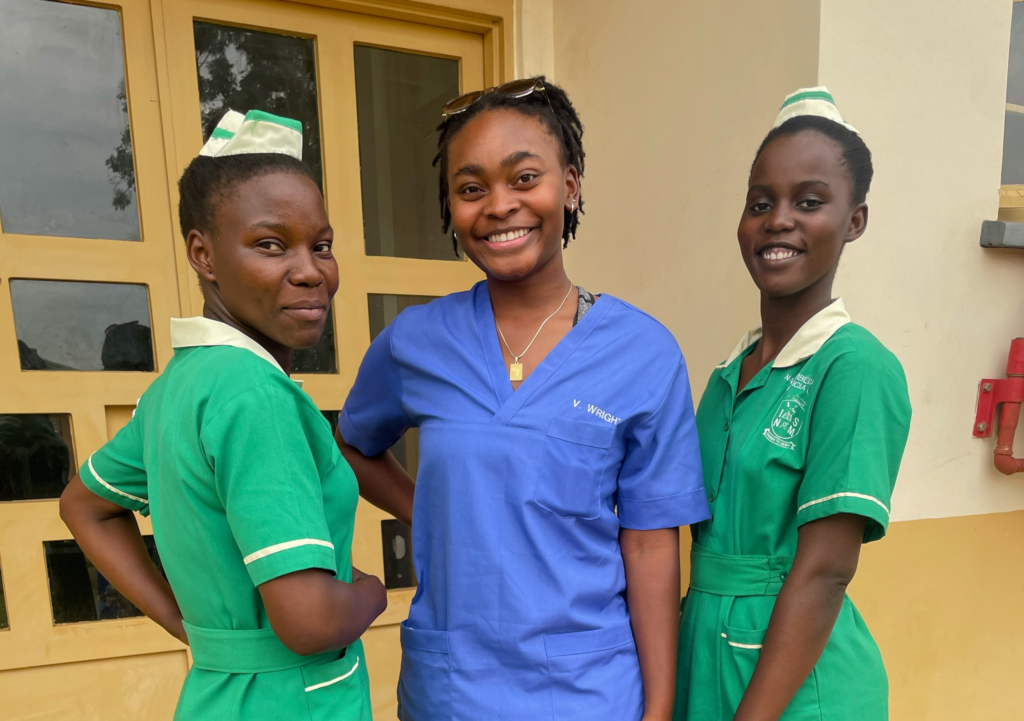The Arts & Sciences senior has researched public health initiatives through an anthropological lens in Uganda, Switzerland, and St. Louis.
Victoria Wright has always been a curious person. WashU has allowed her to embrace that curiosity and explore her many interests. Take her double major, for example: The Arts & Sciences senior is studying both philosophy-neuroscience-psychology (PNP) and anthropology, concentrating on cognitive neuroscience and global health and environment.
Wright recently talked with the Ampersand about her time at WashU, her upcoming graduation in May 2025, and her experience conducting public health research — both at home and abroad.
When did you become interested in undergraduate research?
I think WashU has really allowed me to flourish in different avenues. The summer of my freshman year, I became involved with the Institute for Public Health’s Summer Research Program and began working in WashU’s Child & Adolescent Psychiatry clinic. I spent eight weeks exploring the efficacy of methods for preventing child maltreatment recidivism among infants and toddlers in the custody of the St. Louis court system through the SYNCHRONY Project. It was there that I was able to start integrating my passion for public health policy with psychiatry and mental health.
Which experiences were particularly influential in your research journey?
The time I spent in Uganda the summer of my sophomore year through GlobeMed, which is a student-run nonprofit here on campus, was really defining for me as a researcher. I was able to be a community health researcher with the Uganda Development and Health Associates (UDHA), where I participated in ethnographic research around cultural and social attitudes about menstruation. That’s when I was able to really explore women’s global health initiatives. That experience opened the door for the global research that I do and led me to work with Lindsay Stark in the Brown School on a UNICEF initiative that seeks to improve women’s and girls’ safety and well-being in humanitarian contexts. I was able to explore what it looks like to have social support in countries like Indonesia, Uganda, and Jordan.
Where else has your research taken you?
During the spring of my junior year, I traveled to Switzerland and conducted a comparative analysis of the time I spent in Uganda, studying what menstruation looked like there and putting it in conversation with the different policy initiatives in Geneva. I was able to take a top-down approach to research. I interviewed people from the World Health Organization (WHO), UNICEF, local NGOs, and Geneva government officials about the medicalization of menstruation. It was an amazing experience, and I learned so much from their perspectives.
